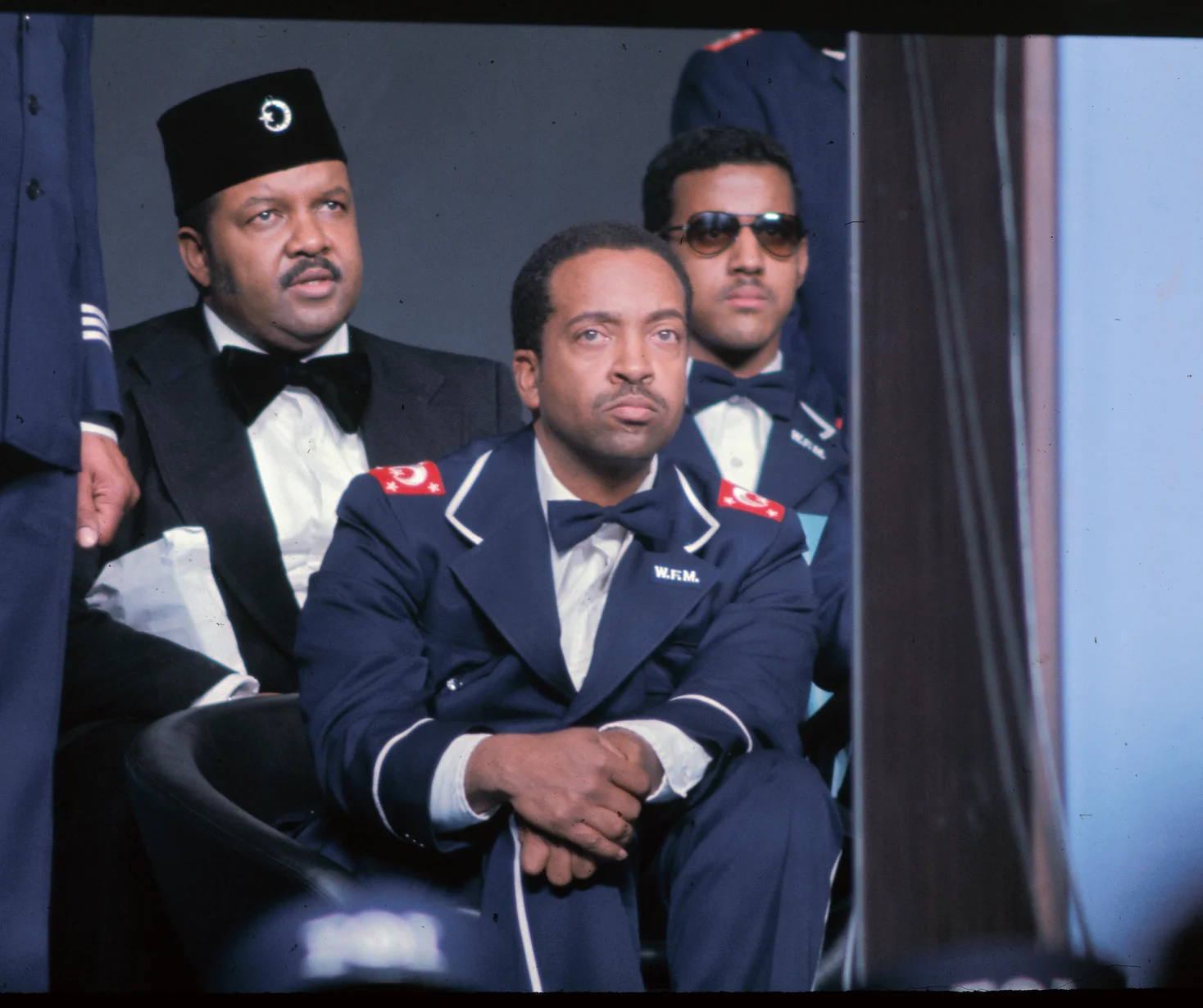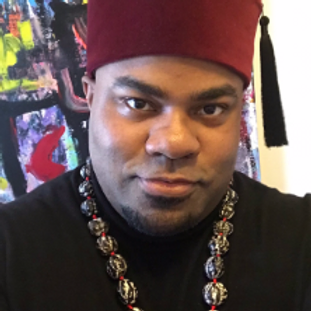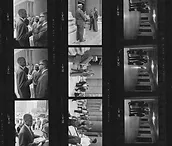Photo by Bettmann Collection/Getty Images
Heir Apparent
On February 25, 1975, one day before the Nation of Islam’s annual Saviours’ Day convention, The Honorable Elijah Muhammad, died. The announcement of the physical departure of the leader of Black Muslims, who called him “Messenger of Allah,” sent shockwaves through the Nation of Islam and Black America.
Since Elijah Muhammad did not declare an official successor to his position of power, there was much ambivalence about who would take the helm. Grief-stricken and bereft of a leader, Nation of Islam members attended the Saviours’ Day convention uncertain of the future of their movement.
For forty years the Honorable Elijah Muhammad was the sole leader of the Nation of Islam. Under his care, the organization produced schools, grocery stores, clothing stores, a printing press, a bank, import/export businesses, and some of the preeminent thought leaders in Black America, including Malcolm X, Muhammad Ali, and Minister Louis Farrakhan.
The above photo, taken February 26, 1975, marked the announcement of a new leader who radically changed the direction of the movement. The newly appointed leader was the seventh child of Elijah and Clara Muhammad, Wallace Delaney Muhammad.

Game Changer
From 1975 to 1980, the Nation of Islam changed drastically. After becoming the leader of the Black Muslim movement in America, Wallace D. Muhammad was in position to become one of the most powerful Black leaders.
Prior to the transition in leadership, the movement preached and practiced a strict doctrine of racial separation, and the organization was valued at $80 million. Additionally, Nation of Islam members were discouraged from working in corporate America and were encouraged to become entrepreneurs to serve the needs of the Black community under the clarion call of “doing for self.”
Once he came to power, Wallace D. Muhammad’s chief desire was to transform the Nation of Islam from a marginalized counterculture into an organization that was accepted both in the American mainstream and in the orthodox world of Islam.
The Nation of Islam changed its name to the World Community of Al-Islam and permitted all races to join the movement. Prior to Wallace’s installation, membership of the Nation of Islam consisted exclusively of members who were Black Indigenous people of color. To make the Nation of Islam more consonant with the message of Al-Islam, he removed the furniture from the mosques and had members sit on the floor during religious services.

Photo by Bettmann Collection/Getty Images
A New Identity
Wallace took on the name and title of The Honorable Supreme Minister Wallace Muhammad and ultimately came to be known as Imam Warith Deen Mohammed.
Subsequently, he changed the name of the iconic Muslim newspaper from Muhammad Speaks to Bilalian Speaks. Imam Mohammed felt that Bilalian, a reference to Bilal Ibn Rabah, an Ethiopian slave freed by the prophet Muhammad, best aligned with the collective identity of Black people in America.
Under his leadership, the Nation of Islam enjoyed a wider reach and ostensible acceptance. However, the organization was waning in the power that it once had to transform the lives of the Black population that mainstream America jettisoned to the fringes of society.
During the peak of the Nation of Islam’s influence, the ranks of its membership swelled, as many Black people who dwelled in the neglected urban and rural communities across America identified with Elijah Muhammad’s message of racial empowerment.
Also contributing to the diminution of power was the demilitarization of the organization ordered by Imam Mohammed. He dissolved the gender-based, intraorganizational paramilitary forces of the Fruit of Islam (FOI) and Muslim Girls Training & General Civilization Class (MGT & GCC).
Continuing the trend of relaxing the austere discipline that the organization once imposed upon its membership, he eased the prohibition on facial hair and allowed the Muslim men to grow beards and adopt the popular Afro hairstyle of the 1970s. Simultaneously, Muslim women were no longer required to dress modestly and could sport the popular fashions of the day.
Even though he pared back the militancy of the Nation of Islam, members of the organization were permitted and encouraged to join the American military, and the American flag was displayed in all mosques. Despite his attempt to relax the many restrictions that the organization imposed, the movement lost members and many returned to the life they knew before joining the Black Muslim movement. Subsequently, the Nation of Islam lost its businesses, schools, and many of its houses of worship.

Atonement at Once
Imam Warith Deen Mohammed passed away on September 9, 2008, at the age of 74. His organization still functions today under the name of Mosque Cares Incorporated and is still honored in the Islamic world for acquainting Black Americans with mainstream Islam and the study of the Holy Qur’an in Arabic.
Eight years before he passed away, Imam Warith Deen Mohammed appeared at the annual Saviours’ Day convention in 2000 hosted by the faction of the Nation of Islam that Minister Louis Farrakhan revived in 1978 after defecting from Imam Mohammed’s organization.
This photo of both Imam Mohammed and Minister Farrakhan is significant, as it displays a gesture of unity between the two most prominent leaders of Islam in Black America. The men had been at odds ideologically since 1976 when Minister Farrakhan decided that he could no longer follow the leadership of Imam Mohammed.
The embrace of love and atonement between Imam Mohammed and Minister Farrakhan demonstrated to Black America and the Islamic world that differences between Muslims could be reconciled in the spirit of furthering Islamic brotherhood and moving past sectarian differences. Although the two movements still disagree ideologically, they have been shown to worship at Friday prayers together.

Listen to the author:
Learn more:
Warith Deen Mohammed, As Light Shineth from the East (WDM Publishing Co., 1980)
C. Eric Lincoln, The Black Muslims in America (Wm. B. Eerdmans Publishing Co., 1994)
Michael Saahir, The Honorable Elijah Muhammad: The Man Behind the Men (Words Make People Publishing, 2011)





